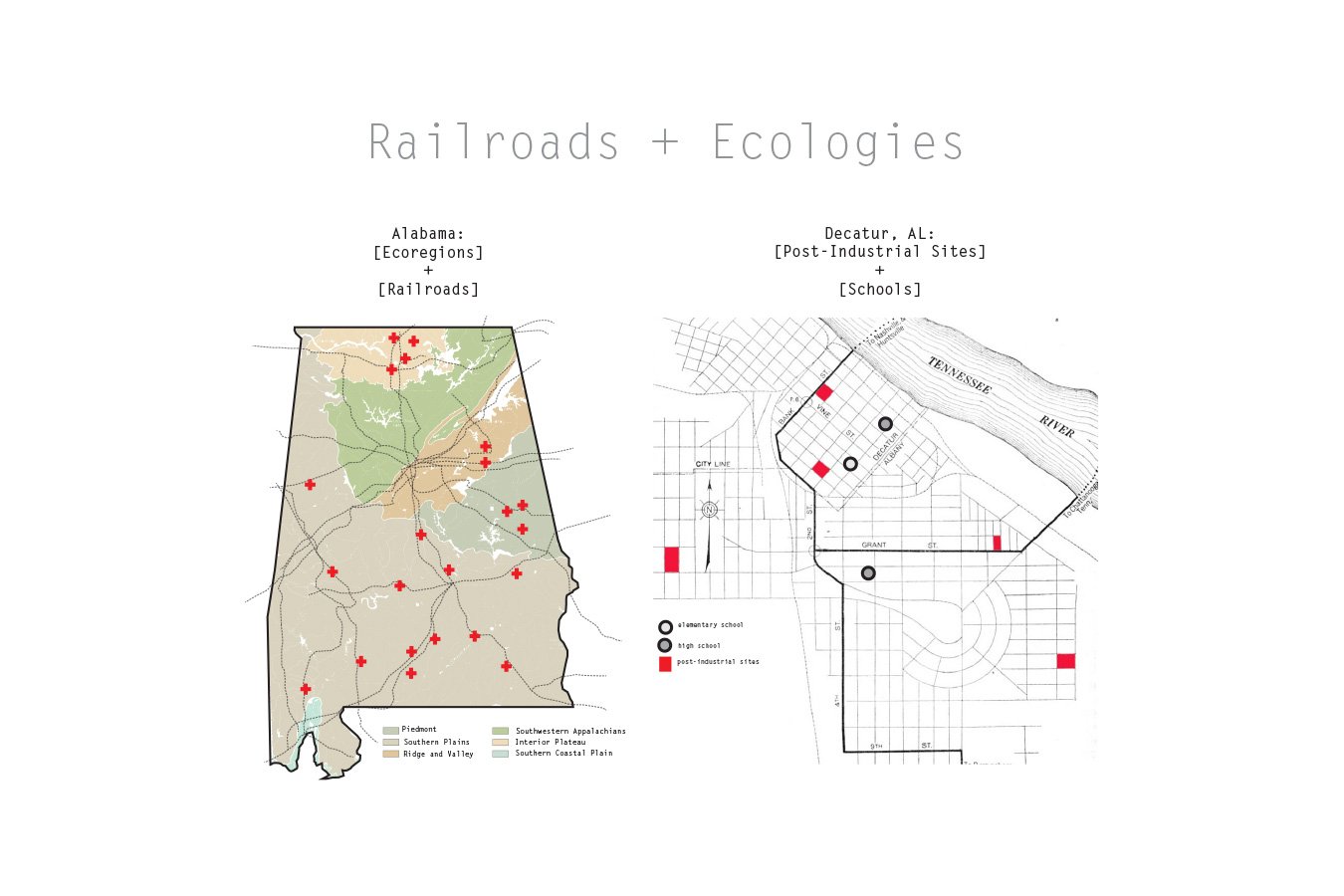A REPUBLIC OF BEINGS




One
Members of homo sapiens are not the only marginalized groups on earth
Plant, insect and animal species have been scripted out of the democratic process
They have no say in the evolution of public space because they are not seen as part of the public, as contributors to civil society
But contemporary environmental crises invite us to re-think the marginalization of nonhumans from the republic of beings, since many of these crises are caused by the coding of nonhuman species as subhuman
This project suggests one way that nonhuman species can be reintegrated into the civic agenda
They are enabled to transgress the boundaries by means of which they have been categorized and divided, and subject to disorientation, diminution and disappearance
Two
The railroad system of alabama moves through dense populations of marginalized, recoded and endangered species – plants, birds, animals, insects
The railroad is used to revivify these populations through the operations of rail transportation and exchange that transformed the social and economic potentials of human lives in the 19th century
Just as then, the railroad is again utilized to open new spaces of encounter and new territories for repopulation and colonization
These infrastructural operations will be turned to the advantage of marginalized plants, animals and insects in auburn, AL
How it works
1 A mapping process identifies bioregional Alabama species assemblages which include endangered and imperiled species
2 The resulting map is overlaid with the existing Alabama rail system. Disused rail stations and train depots in at-risk assemblages are located on the map
3 Also mapped are stations and depots that are located in potential new habitat areas for the endangered plant and animal communities
4 A train is repurposed as a linear assemblage of moving greenhouses that can receive and transport species from imperiled locations to new habitat structures, much as the Victorian Wardian case was used to transport plant species from colony to colony in the nineteenth century
6 Disused and abandoned train depots are repurposed as democratic sites where plants, animals and insects are encountered by humans in ways that do not privilege one over the other
7 New kinds of public space emerge at the depots – terrains of colonization, discovery and encounter where bats, woodpeckers, trillium and other marginalized species become new immigrants and find paces in which to set down roots, live and cohabit
8 From these zones of transition and encounter, species spread out into their new landscape habitats through a process of co-evolution, rebuilding their ancient communities and forging new relationships
Student Team - Sylvia Barnett, Carlton Hines, Drake Reeder, Seth Ristow (2013)